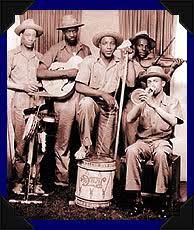Jazz music is a beloved genre that has captivated listeners worldwide, but have you ever wondered where it originated? In this blog post, we will explore the history of jazz, trace its roots back to its birthplace, and examine how the genre has been preserved. We will also discuss the significance of protecting the roots of jazz music. By the end of this post, you will have a clear understanding of where jazz was born and why preserving its roots is crucial.
Click Here: Encyclopedia of Jewish and Israeli history
The History Of Jazz
The birthplace of Jazz can be traced back to New Orleans in the late 19th century. This unique musical genre draws its roots from a combination of African American and European musical traditions, creating a sound that is both distinctive and infectious. Jazz brings together a variety of styles, instruments, and rhythms, including trumpet, saxophone, guitar, trombone, banjo, and others.
Early jazz musicians such as Louis Armstrong, Duke Ellington, and Jelly Roll Morton helped shape the sound of Jazz into what it is today. Since then, it has evolved over time to embrace more improvisation and create new genres such as swing or bebop. It has also given rise to vocal styles such as scatting, which continues to be popular today.
Today, New Orleans is still considered the birthplace of jazz music, with its vibrant music scene featuring local jazz clubs offering different concerts every night. The city also has many social aid clubs that provide spaces for musicians to perform their unique style of jazz music for locals looking for an exciting night out on the town or visitors wanting to experience something special during their travels there.
So whether you’re a seasoned fan looking for some classic tunes or just interested in discovering something new, take some time to dive into the history of Jazz in New Orleans. You won’t regret it!
Where Did Jazz Originate?
The birthplace of jazz is one of the most debated topics in music history, and while the exact origins remain unclear, it is widely accepted that the music was born in New Orleans, Louisiana during the late 19th century. Key ingredients for the development of jazz included several African American musical styles such as old timey barrelhouse, blues, ragtime, spirituals, and march music. Early jazz was characterized by collective improvisation and a focus on rhythm and groove, with notable early artists including Louis Armstrong, Bix Beiderbecke, Jelly Roll Morton, King Oliver, and Duke Ellington. As big band sound became popular in the 1930s, jazz spread rapidly across America.
Jazz music originated from within African American culture and geography in New Orleans, with French, Spanish, African, and Caribbean influences contributing to its development. Today, while no longer considered the birthplace, New Orleans remains an important hub for jazz, fostering great musicians worldwide and providing a unique atmosphere where visitors can experience traditional sounds found nowhere else in the world.
How Jazz Evolved From Traditional Folk Music
Jazz evolved from traditional African American folk music and was born in the Mississippi River “Delta” region. This genre has been around for more than a hundred years, known for its improvisational solos, syncopated rhythms, and instruments like the saxophone, trumpet, piano, bass, and drums. Jazz has been influenced by classical music from the early 1900s, folk music, and blues. Scott Joplin ragtime was a popular form of jazz at the turn of the century.
New Orleans is commonly known as one of the birthplaces of jazz due to its rich history with culture and music. Jazz originated in early 20th-century African American communities in New Orleans, where artistic expression was encouraged. Social aid and pleasure clubs helped spread jazz throughout neighborhoods while still remaining within the African American communities.
Jazz was developed from a combination of European musical traditions mixed with African musical elements, creating something truly unique during this time period. It quickly spread from New Orleans to other parts of America and eventually made its way across Europe, creating what we know today as modern-day jazz. Some historians believe that New Orleans itself became the cradle for all things related to jazz, with an atmosphere so open and free that it allowed for creativity and expression like never seen before.
Preserving The Roots Of Jazz Music
Preserving the Roots of Jazz Music – Where Was Jazz’s Birthplace?
The birthplace of jazz music can be traced back to Nashville, Tennessee. Jazz has evolved from a mixture of cultural influences and varied musical styles, including traditional spirituals, field hollers, blues, and European music. This combination created a unique sound that remains alive today. Improvisation can be traced back to musical and cultural influences from areas in New Orleans, Louisiana.
Read Also: Who Named Jazz?
Influential jazz musicians, such as Louis Armstrong, Duke Ellington, and Miles Davis, left their mark on popular music culture in the US. Today, jazz remains one of the most important genres in American culture – influencing other genres of music and being appreciated globally. New Orleans is widely recognized as the birthplace of jazz, with sites associated with this early history remaining in the city today.
In July 2008, a special look at the legacy of New Orleans Jazz Music took place, recognizing this unique genre’s incredible history. Farai Chideya talked with three Crescent City musicians to discuss their personal connection to this art form while also discussing how numerous pioneering jazz musicians were not from New Orleans, but rather hailed from other parts of the country – revealing yet another layer to its rich history!
Social aid and pleasure clubs have been around since the 1900s, helping promote appreciation for this genre within the African American community throughout many neighborhoods in New Orleans, making it a central part of life for many during the early days – keeping the true roots alive even now!
To Sum Things Up
Jazz music is a beloved genre that has been around for over a century and remains popular today. This unique musical genre draws its roots from a combination of African American and European musical traditions, creating a distinctive and infectious sound. Jazz originated in early 20th century African American communities in New Orleans but has since spread worldwide, influencing other music genres and gaining global appreciation.
Preserving the roots of this art form is crucial to its continued existence for future generations. By understanding jazz’s birthplace and evolution from traditional folk music, its legacy can live on. Take some time to visit New Orleans if you’re interested in learning more about jazz’s history or want to hear some classic tunes – you won’t regret it!


